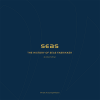Justice, Political Liberalism, and Utilitarianism: Themes from Harsanyi and Rawls
The utilitarian economist and Nobel Laureate, John Harsanyi and the liberal egalitarian philosopher, John Rawls were two of the most eminent scholars writing on problems of social justice in the last century. This volume pays tribute to Harsanyi and Rawls by investigating themes that figure prominently in their work. In some cases, the contributors explore issues considered by Harsanyi and Rawls in more depth and from novel perspectives. In others, the contributors use the work of Harsanyi and Rawls as points of departure for pursuing the construction of new theories for the evaluation of social justice. The introductory essay by the editors provides background information on the relevant economics, game theory, philosophy, and social choice theory, as well as readers’ guides to the individual contributions, to make this volume widely accessible to scholars in a wide range of disciplines.
• Essays explore core questions of social justice drawing on the work of Nobel Laureate John Harsanyi and distinguished political philosopher John Rawls • Major themes of utilitarianism and liberal egalitarianism are reconsidered • Contributions come from world-renowned economists and philosophers
Contents1. An introduction to justice, political liberalism, and utilitarianism Marc Fleurbaey, Maurice Salles and John A. Weymark; Part I. Themes from Rawls: 2. John Rawls’s theory of justice: some critical comments John C. Harsanyi; 3. Rawls, responsibility, and distributive justice Richard Arneson; 4. Improving our ethical beliefs James Griffin; Part II. Harsanyi’s Impartial Observer and Social Aggregation Theorems: 5. Harsanyi’s impartial observer is not a utilitarian John E. Roemer; 6. Social aggregation and the expected utility hypothesis Charles Blackorby, David Donaldson and John A. Weymark; 7. A welfarist version of Harsanyi’s aggregation theorem Claude d’Aspremont and Philippe Mongin; 8. Preference aggregation after Harsanyi Matthias Hild, Richard Jeffrey and Mathias Risse; Part III. Goodness and Well-Being: 9. Can there be a preference-based utilitarianism? John Broome; 10. Harsanyi, Rawls and the search for a common currency of advantage Robert Sugden; 11. Utilitarianism versus fairness in welfare economics Marc Fleurbaey and François Maniquet; 12. Rationality and want-satisfaction Brian Barry; Part IV. Sharing the Gains from Social Cooperation; 13. Naturalizing Harsanyi and Rawls Ken Binmore; 14. The social contract naturalized Brian Skyrms; 15. An alternative model of rational cooperation Edward F. McClennen; Part V. Rights and Liberties: 16. Republican political theory Philip Pettit; 17. Rule utilitarianism and liberal priorities Jonathan Riley.
Reviews\'\'As befits a joint tribute to Harsanyi and Rawls, this edited collection explores overlapping themes from the disciplines of philosophy, politics, and economics …There are notable contributions by 23 eminent authors … the book serves as an overdue and fitting reminder not only of our great debts to Harsanyi and Rawls in particular, but also of how philosophy, politics, and economics have always had some close links.\' Peter Hammond, University of Warwick
\'This is a collection of authoritative essays on utilitarianism, justice, and liberalism by eminent scholars. The editors are to be thanked for this exceptionally stimulating volume which explores some of the central issues in political and social philosophy.\' Prasanta K. Pattanaik, University of California, Riverside
\'This is a state of the art collection of essays on the works of Rawls and Harsanyi with a superb introduction. Economists and philosophers with interests in well being, social aggregation, cooperation, or liberty will want to read this volume.\' Peter Vallentyne, University of Missouri-Columbia
- Forlag: Cambridge University Press
- Kategori: Filosofi
- Lagerstatus: Ikke på lagerVarsle meg når denne kommer på lager
- Antall sider: 448
- ISBN: 9780521640930
- Innbinding: Innbundet











